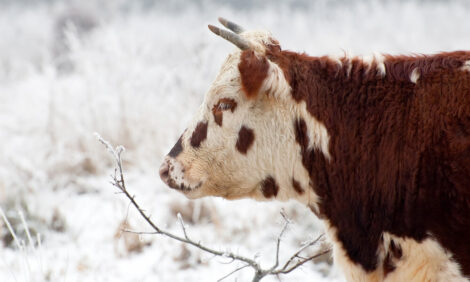



Canadian Beef Exports to South Korea Re-Opened After BSE Case
CANADA - The Canadian meat industry has welcomed the resumption of beef and veal exports to South Korea, which was suspended early in 2015 after a case of BSE.Canada's Agriculture and Agri-Food Minister Lawrence MacAulay announced the move on 31 January.
Korea had suspended trade temporarily until the Canadian Food Inspection Agency (CFIA) completed the investigation and technical report on a case of BSE that was diagnosed in February.
“Canada’s internationally competitive and export-dependent livestock and meat sector is a driver of economic growth and a provider of jobs in every region of this country,” said Canadian Meat Council President Joe Reda.
“When meat exports increase, sales opportunities for farmers rise, job opportunities for workers expand, and Canadians benefit from greater economic growth,” added Mr Reda.
“Consisting of 50 million mostly middle income consumers, and a beef and veal import demand that totals US$1.7 billion annually, the South Korean market is highly coveted by all of the globe’s major beef exporting nations,” said Matt Gibney, Chair of the Canadian Meat Council Beef, Veal and Lamb Committee.
“Combined with implementation of the Canada-Korea Free Trade Agreement on January 1 2015, today’s announcement allows Canadian beef and veal exporters to begin the process of reclaiming a greater share of the important Korean market,” added Mr Gibney.
“The sixth largest export market in the world, it is projected that South Korea will import more than 400,000 tonnes of beef and veal during 2016,” said Canadian Meat Council Executive Director Jim Laws.
“Canadian exports of beef and veal to Korea were valued at $25.8 million in 2014. Successful completion of the technical discussions permits this country’s packers and processors to not only renew, but also to further intensify our relationships with Korean importers and consumers.
"It also allows our exporters to take full advantage of the Canada-Korea Free Trade Agreement that will begin its second full year of implementation on January 1, 2016.”
TheCattleSite News Desk


